Ukrainian President Volodymyr Zelensky met with top UN nuclear inspectors in Kyiv today ahead of their visit to inspect the Russian-occupied Zaporizhzhia nuclear plant as intense fighting raged across southern Ukraine, his office said.
International Atomic Energy Agency (IAEA) chief Rafael Grossi arrived in Kyiv last night as the head of a 14-strong team.
The team will visit the Zaporizhzhia plant - Europe's largest atomic facility - which has been occupied by Russian troops since early March.
"This is probably one of the top-priority questions regarding safety of Ukraine and the world today," Mr Zelensky said, calling for the "immediate de-militarisation of the plant" and its transfer to "full Ukrainian control".
The plant was targeted over the weekend by fresh shelling, Ukraine's nuclear agency Energoatom said, with Moscow and Kyiv trading blame for attacks around the complex of six nuclear reactors located on the banks of the Dnipro River.
We need your consent to load this rte-player contentWe use rte-player to manage extra content that can set cookies on your device and collect data about your activity. Please review their details and accept them to load the content.Manage Preferences
Mr Zelensky accused Russia of attacking the area near Zaporizhzhia.
"Sadly, Russia is not stopping its provocations precisely in the directions the mission needs to travel to arrive at the plant," he said in his daily address.
"I hope the IAEA team will be able to start its work."
Mr Zelensky also urged Russian soldiers to flee for their lives after his forces launched an offensive to retake southern Ukraine, but Moscow said it had repulsed the attack and inflicted heavy losses on Kyiv's troops.
Ukraine said last night that its ground forces had gone on the offensive in the south for the first time after a long period of striking Russian supply lines, in particular bridges across the strategically important River Dnipro and ammunition dumps.
"If they want to survive, it's time for the Russian military to run away. Go home," Me Zelensky said in a late-night address.
"Ukraine is taking back its own (land)," he said, adding that he would not disclose Kyiv's battle plans.
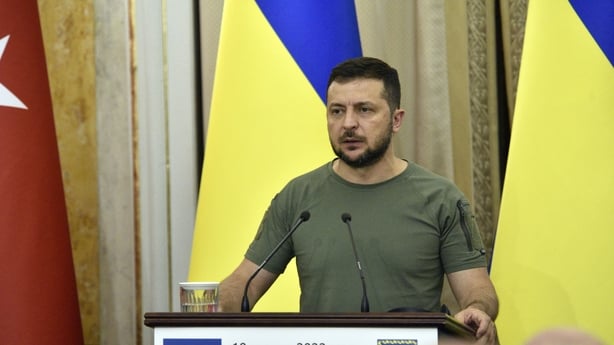
In response, Kremlin spokesperson Dmitry Peskov said that Russia was methodically pressing on with its plans in Ukraine, adding: "All of our goals will be reached."
The Ukrainian offensive comes after weeks of relative stalemate in a war that has killed thousands, displaced millions, destroyed cities and fuelled a global energy and food crisis amid unprecedented Western economic sanctions on Russia.
Russia captured swathes of southern Ukraine near the Black Sea coast in the early weeks of the war, including in the Kherson region which lies north of the Russian-annexed Crimean peninsula.
Ukraine, now armed with sophisticated Western-supplied weapons, sees retaking the region as crucial to prevent Russian attempts to seize more territory further to the west that could eventually cut off its access to the Black Sea.
Oleksiy Arestovych, a senior Ukrainian presidential adviser, said Russian defences in the Kherson region had been "broken through in a few hours". It was unclear which line of Russian defence, of which there are many, he was referring to.
Mr Arestovych also said Ukrainian forces were shelling ferries that Russia was using to supply its forces on the west bank of the Dnipro.
Natalia Humeniuk, a Ukrainian military spokesperson, told a briefing today that Kyiv could destroy any pontoon bridge or ferry crossing across the river that Russia tried to build.
"The whole area where such a crossing can be built is under our fire control and (any new structure) will be hit," she said.
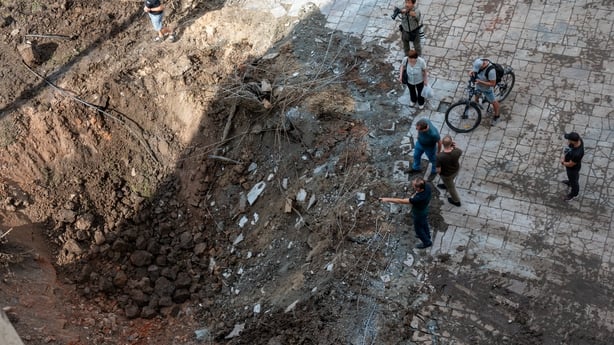
Britain, a close ally of Ukraine, said today that Kyiv had stepped up its artillery barrage across the entire southern front, but said it was not yet possible to confirm the extent of Ukrainian territorial advances.
Vitaly Kim, governor of the Mykolaiv region, told Ukrainian TV: "Heavy fighting is going on. Our military is working around the clock. Liberation of the Kherson region is coming soon."
Unverified reports, images and footage on social media suggested that Ukrainian forces may have taken back some villages and destroyed some Russian targets in the south.
Russia's RIA news agency reported that the Russian-controlled town of Nova Kakhovka had been left without water or power after a Ukrainian missile strike.
However, Russia's defence ministry said the Ukrainian offensive had been thwarted.
It said Ukrainian forces, after attempting to go on the offensive in three different directions in the southern Mykolaiv and Kherson regions, had lost over 1,200 military personnel as well as 139 tanks, armoured vehicles and trucks.
Russia's defensive actions had resulted in a rout of Ukrainian forces, it added, saying air defence units had also shot down dozens of missiles near Kherson.
Reuters could not verify the battlefield reports.
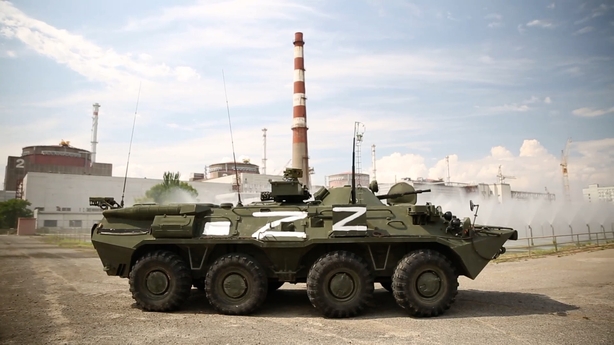
Ukraine's Suspilne public broadcaster reported explosions in the Kherson area, while city residents reported hearing gunfire and explosions.
A Russian-installed official in Kherson, Kirill Stremousov, was quoted by the TASS news agency as saying a group of armed people had tried to put up resistance to police in one area of Kherson after hearing about Ukraine's offensive.
One of the people was killed in a shootout, TASS added.
Heavy Russian shelling of Kharkiv, Ukraine's second city, was also reported.
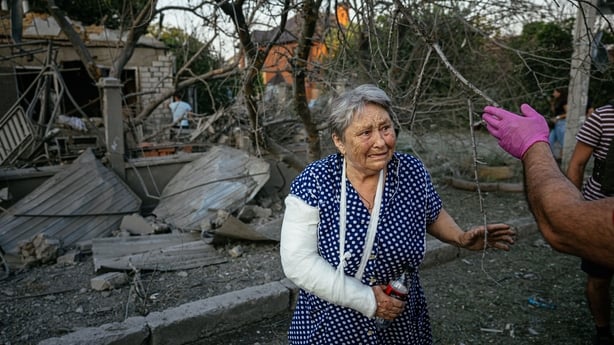
At least five people were killed and seven wounded, the mayor of Kharkiv, Ihor Terekhov, wrote on the Telegram messaging app.
Russia denies deliberately targeting civilians, though its shelling has devastated Ukrainian towns and cities.
The European Union is examining fresh ways to pressure Russia to end the war, but France and Germany warned today against proposals to ban tourist visas for Russians, saying such a move would be counter-productive.
The Kremlin condemned the proposals as "irrational".
France also accused Moscow of using energy supplies as "a weapon of war" as Russian gas giant Gazprom reduced deliveries to one of its main utilities and prepared to halt flows along the major pipeline to Germany from tomorrow.
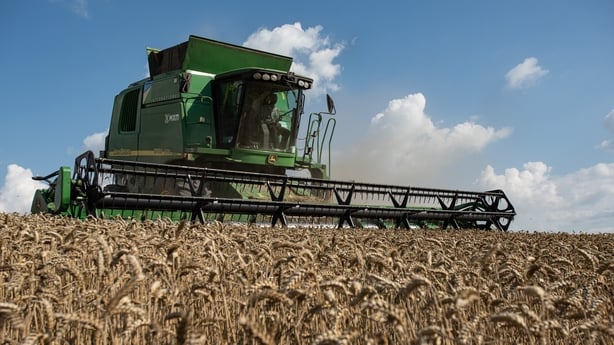
Grain on UN-chartered vessel reaches Djibouti
The war has contributed to a global food and energy price crisis.
Russia blockaded Ukraine's ports on the Black Sea at the start of the war, choking off the major harvest exporter from world markets and punishing poorer nations.
The first UN-chartered vessel transporting grain to relieve the food crisis made port in Djibouti, after Turkey and the UN brokered a deal to relax the embargo last month.
Some 23,000 tonnes of wheat aboard the MV Brave Commander is bound for Ethiopia, where millions are at risk of starvation.
The fresh fighting came as students across Ukraine prepared to return to classrooms on Thursday after schools were shut by the Russian invasion, now in its seventh month.
Only those schools with air-raid bunkers will be permitted to reopen, with the rest reverting to online learning.
"We just want to live our life fully," 16-year-old student Polina said in Kyiv.
"We are not afraid, we have already lived enough. Our generation has decided to live in the present moment."

